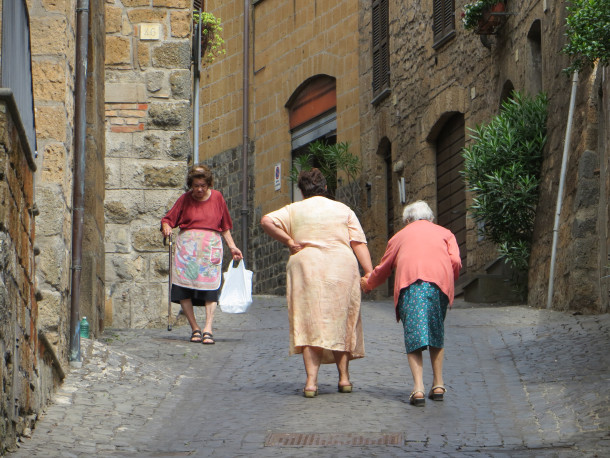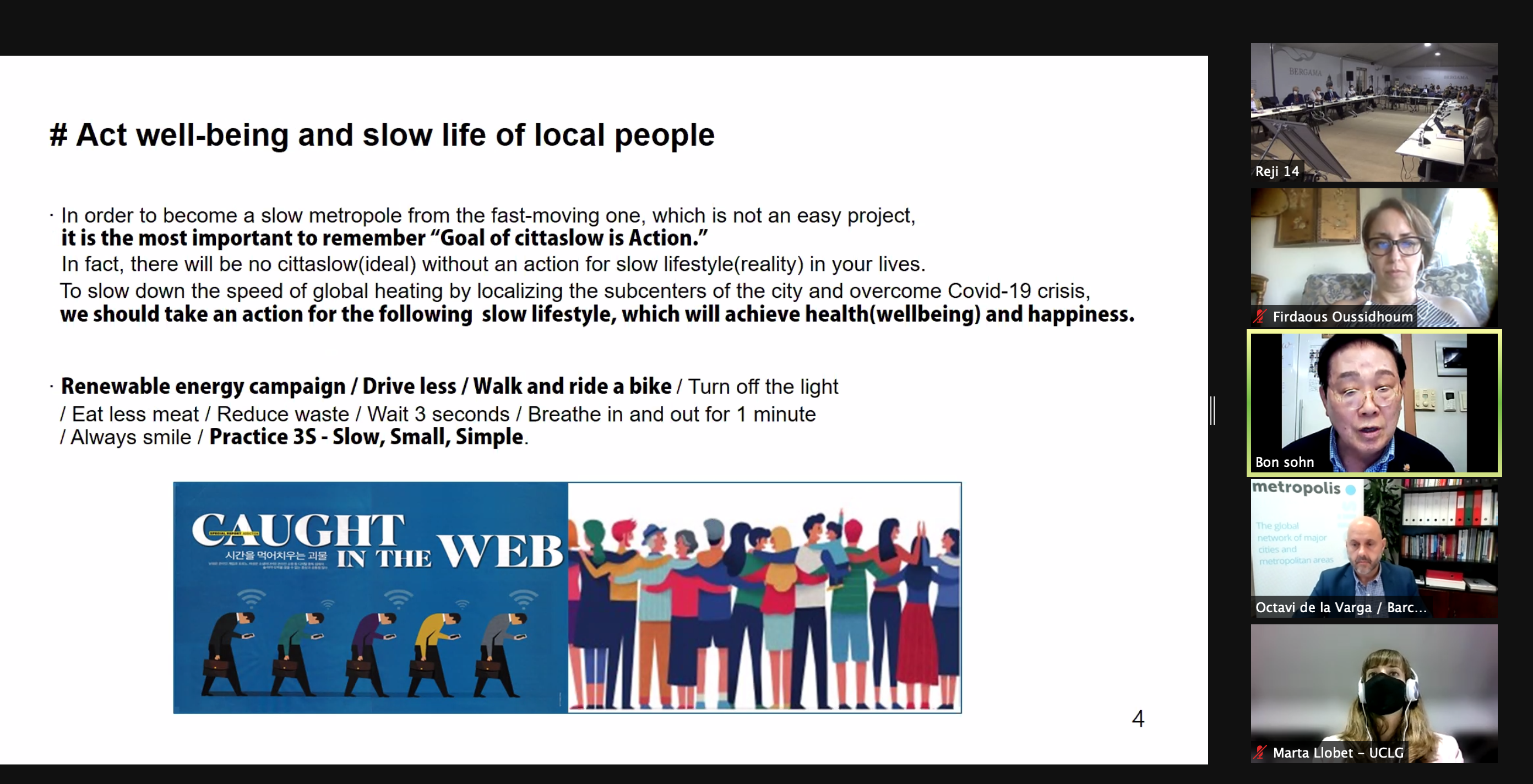
Thomas Alan on Flickr
The spirit of Cittaslow has sidled into the metropolis
Goolwa, Hartberg, Pijao, Orvieto and Begur are just some of the towns and cities that have embraced the benefits of the 'slow' movement—the philosophy of life that encourages people to take their foot off the accelerator and live at more of a snail’s pace. They promote a healthier, more relaxed and sustainable way of life, one that is less frenetic, more human, environmentally friendly and supportive, and that goes back to a culinary identity that sometimes seems to have been lost.
Actually, a snail was chosen as the logo for the small towns—with no more than 50,000 inhabitants each—that belong to the international Cittaslow network. Metropolis organised a session with them on 10 September titled “CittaSlow Metropolis: Engaging large cities in the CittaSlow movement” under the framework of the 4th UCLG Culture Summit, hosted by the Izmir Metropolitan Municipality from 9 to 11 September 2021. Moderated by Octavi de la Varga, Metropolis Secretary General, the session addressed the question of what we mean by slowness, and whether it is a means to building more sustainable metropolises.
The Cittaslow model, which began in Italy less than 10 years ago as an attempt to incorporate the philosophy of slow food in the design and planning of small towns and cities, is increasingly appealing to larger metropolises.
However, this approach gives rise to many questions. Is it possible to slow down a big city? What should the priorities be? How can we define slow living in a metropolis? The key to making big cities slow and small seems to be decentralisation. Turning each district into a small town creates Cittaslow neighbourhoods for everyone. As Pier Giorgio Oliveti, Cittaslow International Secretary General, reminded us during the session, a metropolis can be sustainable, healthy and a place where everyone can live.
The Izmir Metropolitan Municipality, a firm supporter of the international Cittaslow movement, which promotes a gentler rhythm of life in the daily activities of human beings, is currently hosting the first pilot project of Cittaslow Metropolis, which will run from today until 30 June, 2022. The pilot project lays the foundations for classifying ‘slow neighbourhoods’ in large cities to increase quality of life, public health and social cohesion. This approach would make central neighbourhoods, as well as the interconnected communities that surround them, more ‘humane’ and suitable for the people of all ages who live and work there.
“The urban formula of ‘the more people the better’ has been broken since Covid-19. We need to decentralise the population.”, Prof. Bon Sohn
There is no doubt that the pandemic has led us to reflect on new ways of living in large cities, and has encouraged our objectives to recover the spaces where we live. Citizens have realised they need places to walk, meet and have fun. The global pandemic has motivated citizens to slow down big cities even further. As Prof. Bon Sohn, Coordinator of the Cittaslow Korea Network, commented, “the urban formula of ‘the more people the better’ has been broken since Covid-19. We need to decentralise the population.”

The Cittaslow Metropolis programme aims to integrate Cittaslow in the metropolis, where people can have fun, meet, take part in cultural and sports activities and lead a healthy and safe life. In the words of Andrea Calori, Researcher at Cittaslow International, “we are facing a jump between the experience of small cities and larger cities.”
This model, as highlighted by K. Bülent Köstem, Coordinator at Cittaslow Metropolis Izmir, can be applied to all large cities. To start off with, we will need the involvement of the community, and their demands and expectations; as well as working on the more physical side of the city and behaviour in general.
The movement, founded in 1999 thanks to a brilliant initiative by Paolo Saturnini, former mayor of Greve in Chianti, a small town in Tuscany, gives us the chance to choose a different path for the future of our metropolises.
“Being fast and big are the main reasons why we have destroyed our countries, and we know that this is not sustainable. (...) It’s time to apply the Cittaslow criteria to metropolises”, Mustafa Tunç Soyer
“Being fast and big are the main reasons why we have destroyed our countries, and we know that this is not sustainable. (...) It’s time to apply the Cittaslow criteria to metropolises”, said Izmir Mayor Mustafa Tunç Soyer.
“This is intrinsically linked to culture. There is a struggle between economics and ecology, which is also destroying the future. We have to find a balance between the two, and this is a question of culture. Without culture, if you have an economy, you will have inequality and autocracy. That’s why culture is essential.”
“Perhaps the way of the snail is not slow, but the right path”, concluded Tunç Soyer.

